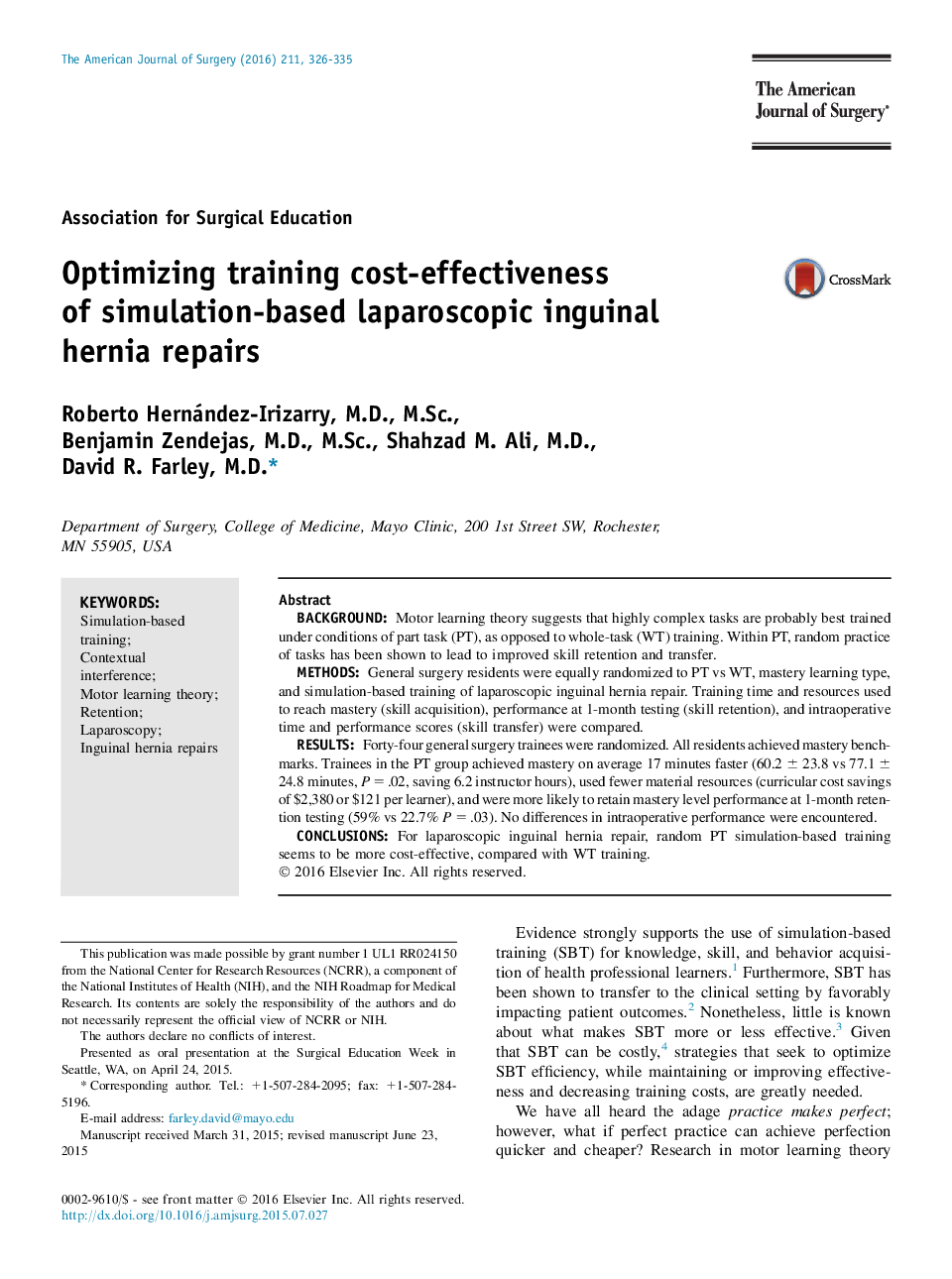| Article ID | Journal | Published Year | Pages | File Type |
|---|---|---|---|---|
| 4278146 | The American Journal of Surgery | 2016 | 10 Pages |
BackgroundMotor learning theory suggests that highly complex tasks are probably best trained under conditions of part task (PT), as opposed to whole-task (WT) training. Within PT, random practice of tasks has been shown to lead to improved skill retention and transfer.MethodsGeneral surgery residents were equally randomized to PT vs WT, mastery learning type, and simulation-based training of laparoscopic inguinal hernia repair. Training time and resources used to reach mastery (skill acquisition), performance at 1-month testing (skill retention), and intraoperative time and performance scores (skill transfer) were compared.ResultsForty-four general surgery trainees were randomized. All residents achieved mastery benchmarks. Trainees in the PT group achieved mastery on average 17 minutes faster (60.2 ± 23.8 vs 77.1 ± 24.8 minutes, P = .02, saving 6.2 instructor hours), used fewer material resources (curricular cost savings of $2,380 or $121 per learner), and were more likely to retain mastery level performance at 1-month retention testing (59% vs 22.7% P = .03). No differences in intraoperative performance were encountered.ConclusionsFor laparoscopic inguinal hernia repair, random PT simulation-based training seems to be more cost-effective, compared with WT training.
